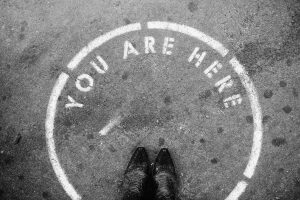Table of Contents
Singaporeans are known to be a stressed-out bunch, and surveys have found us to be one of the most overworked cities in the world.
But even if we didn’t already know that, it’s a fact that stress permeates our lives, where ever we are. Whether it is being laid off from a job, experiencing a tough breakup, or losing a loved one–life is filled with trials and tribulations, and that’s normal.
With all the cray-cray situations that life can possibly throw at us, it is natural (and necessary) for us to come up with coping mechanisms to deal with difficult emotions and grow from them.
The problem is, not all coping mechanisms are made equal. While people drink for many reasons; whether to celebrate, socialise, or grapple with the harsh realities of life–issues tend to arise once the liquid courage starts to fade, and it starts interfering with our physical and mental well-being.
What are coping mechanisms in the first place?
If you have ever experienced any kind of stress or trauma, you would have likely utilised coping mechanisms to deal with painful and difficult emotions.
The American Psychological Association (APA) defines coping mechanisms as “any conscious or non-conscious adjustment or adaptation that decreases tension and anxiety in a stressful experience or situation.”
In other words, coping mechanisms help us to minimise, tolerate and deal with stressful situations. Coping mechanisms can be further broken down into several coping styles:
- Problem-focused: This coping style comprises of strategies that aim to directly address the problem to reduce stress, such as prioritising tasks, practising time management and deciding to join a support group. This is the coping style that is especially useful for situations over which you have control.
- Emotion-focused: This coping style involves thought-based processes that intend to address the negative emotions experienced during stress. Examples include positive journaling, implementing relaxation strategies, or using acceptance and humour to better manage your internal feelings and process painful emotions. This is a useful style to adopt for situations over which you have little to no control.
- Support-Seeking: This coping style is all about seeking emotional support from the people around you–whether it be eliciting the help of a professional counsellor to gain deeper insights on how to resolve an issue, or talking with a trusted friend or colleague to ease your stress and build stronger connections.
- Avoidance-Focused: This coping style involves avoiding the stressor or dissociating from a stressful situation. This could be by seeking a distraction, such as watching TV, going on a shopping spree, or waiting until the last minute to reply to your boss’s email.
Note that all these coping styles mentioned above could be adaptive (healthy) or maladaptive (unhealthy). For example, while coping using positive affirmations can be beneficial to our well-being; using substances or alcohol to “numb” our emotions and avoid painful emotions is not. Note that while both are emotion-focused and temporarily provide relief from the discomfort, one leads to bigger problems (and stress) in the long run.
At the end of the day, the goal is to create your own unique, coping toolbox filled with adaptive coping mechanisms that you can tap into when times are rough.
The link between alcohol and mental health
We are all aware of the harmful effects that alcohol has on the mind and body (especially when done excessively), so why do we still tend to head for that bottle of wine or extra pint of beer even though we know this?
This might be because alcohol functions to slow down the central nervous system, which is partly why we often feel less anxious, more relaxed and more confident after a drink or two. Using alcohol during stressful periods can activate the dopamine reward circuit in the brain and cause us to crave more. However, these effects quickly wear off; and because alcohol disrupts the balance and number of neurotransmitters (chemical messengers) in the brain, which can affect our feelings, thoughts and behaviours–this kickstarts a vicious cycle of needing more alcohol to achieve the same effects as before.
Alcohol also slows down how your brain processes information, making it harder to work out what you’re really feeling and the possible consequences of your actions (we are all susceptible to doing silly things when we are drunk). Research shows that people who drink alcohol are more likely to develop mental health problems, and it’s also true that people with severe mental illness are more likely to have alcohol problems.
Clearly, there’s nothing wrong with drinking a few cups of beer to unwind or taking a couple of shots at a party, but using alcohol as a coping mechanism does not lead to long-term positive outcomes. They can often act as a crutch that not only prevents us from fully processing our emotions and increasing our self-awareness but also turns our attention away from growing in a positive direction.
Exploring your relationship with alcohol
Ask yourself: What do you automatically do when you’re feeling stressed? Are you using alcohol as a way to temporarily avoid or curb the pain, and most importantly–is it affecting your physical or mental health or other areas of your life, including your relationships? If you are constantly using alcohol to avoid difficult feelings and emotions, you may miss the opportunity to develop other, more adaptive coping strategies to manage them in the future.
Instead of using alcohol as a coping mechanism, why not give these ideas a try:
1) Take decisive actions. Act on stressful situations as much and as soon as you can. Rather than wishing them away, try to identify the problem that is causing the stress and work on developing and putting a plan into action. If it seems too overwhelming, try breaking down the plan into smaller, more manageable steps.
2) Keep things in perspective. Try to consider your situation in a broader context and avoid getting stuck on the little details. It is easy to catastrophise when things do not go our way–instead, try visualising what you want rather than worrying about what you fear. The practice of cognitive reframing can be especially useful to challenge deeply-rooted, negative thoughts and beliefs to gain different perspectives on a situation. This is completely different from toxic positivity, as cognitive reframing involves working through your thoughts to change your behaviours and emotions, rather than simply encouraging you to “think positive”.
3) Practice proactive coping. Proactive coping can be a great way to help you deal with changes and look for opportunities for self-discovery. Sometimes, expecting stressful situations (such as an exam) and building your resources beforehand can be a great way to prevent stress and build resiliency. Setting realistic goals for yourself is an excellent way to start.
4) Find a solid support system. Sometimes, all we really need is to talk to someone about it. Instead of brooding over matters or deciding to self-isolate, seeking external support from loved ones or a mental health professional can help you better thrive in stressful situations.
Ultimately, there is a clear difference if you are using alcohol as a treat or using it as a treatment.
At A Space Between, we currently have over 50 therapists who will be more than happy to work with you through life’s toughest challenges–find a therapist using our directory to get started.
Sources
https://dictionary.apa.org/coping-mechanism
https://www.sandstonecare.com/blog/alcohol-and-the-brain/
https://www.mentalhealth.org.uk/explore-mental-health/a-z-topics/alcohol-and-mental-health

A dreamer whose go-to motto is “Follow Your Heart”, Charmaine is currently embarking on obtaining her Masters’ of Counselling, hoping to eventually make a full-time career in supporting others in their mental health journey. She has always been awed by the beauty of the human psyche and writing remains to be her favourite form of expression. She enjoys reading and writing about trauma, and would like to encapsulate the silver linings of what it means to be an imperfectly perfect human being in all her pieces.



